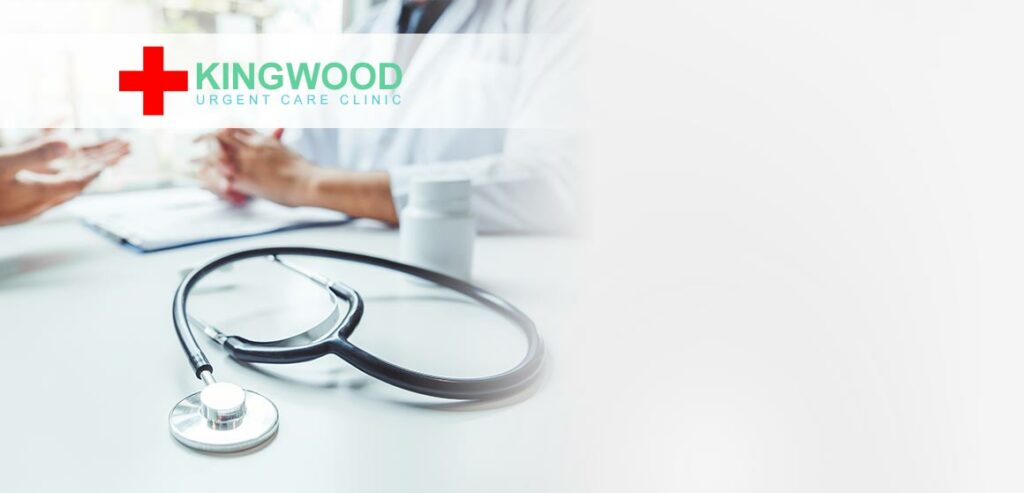Infectious Diseases Treatment in Kingwood, TX
Infectious diseases are infections produced by bacteria that enter the body, multiply, and cause illness. The signs and symptoms differ depending on the organism that is causing the disease, but they often involve fever, cough, and weakness. If you suspect you have an infectious disease, visit our specialists at Kingwood Urgent Care Clinic right away. For more information, contact us or visit us online. Our clinic is conveniently located at 2601 W Lake Houston Pkwy Kingwood, TX.


Table of Contents:
What are infectious diseases?
What are the most common infectious diseases?
How can an infectious disease be cured?
What should I do if I have an infectious disease?
Infectious diseases are caused by organisms that may naturally live in our bodies and for one reason or another, can cause disease under certain conditions. These organisms can be parasites, fungi, viruses, or bacteria that are usually harmless to the body, and in some cases, they are actually helpful for our health. Infectious diseases can occur through transmission from person to person, from an insect or animal, by consumption of contaminated water or food, or through environmental exposure to an organism. The symptoms of infectious disease will vary depending on the type of organism that caused the infection. Some infections may be mild in nature that can resolve themselves with adequate rest and appropriate home remedies. Other infections can be serious, and potentially life-threatening, and require urgent medical care, up to hospitalization. Vaccines can prevent some forms of infectious diseases, with many of them being preventable through regular and consistent hygiene such as thorough and frequent hand washing, as well as staying home when sick.
The term infectious disease covers a broad spectrum of illnesses depending on the source of the illness. Different types of organisms cause very different symptoms and infections, with the cause of an infectious disease stemming from bacteria, viruses, fungi, or parasites. Common infectious diseases caused by bacteria include strep throat and urinary tract infections. Viruses are responsible for a wide range of infectious diseases, from mild illnesses like the common cold to severe, incurable illnesses like AIDS. Fungi is responsible for many skin diseases, including athlete’s foot and ringworm, but can also cause infections to the nervous system or lungs. One of the most common forms of parasitic infectious diseases is malaria, which is transmitted to humans through mosquito bites. Infectious diseases can be spread multiple ways, depending on the type of disease being transmitted. The various means of spread include direct contact spread such as person to person or animal to person contact, as well as from a mother to her unborn child. Indirect contact methods of transmission involve contact with an inanimate object that had previously been touched by an infected person, and the germs lingered on the surface. This can include doorknobs, faucets, tabletops, and any other surface that people touch frequently.
The curability of infectious disease will be dependent on the source organism that caused it and the type of disease. Some infectious diseases such as the common cold will naturally cure themselves, while others require medication such as strep throat or some sexually transmitted diseases. Still, others are incurable, such as AIDS. Some infectious diseases can be prevented through the use of vaccinations such as chickenpox and tuberculosis. Once your doctor has determined the cause of your infectious disease, they can prescribe the right course of treatment, if one is available. Bacterial infections can usually be successfully treated with antibiotics, but those same antibiotics aren’t effective on viruses. Only some viruses can be treated using antiviral medications. Fungal infections can be treated by many different applications of antifungal medications, depending on the type of fungal infection. Antifungal medications can be topical for external infections such as skin infections, oral antifungal medications for infections that affect internal systems such as the lungs, or intravenous antifungal infections for severe internal organ infections. Parasitic infections can be treated with anti-parasitic medications, whoever some types of parasites have become resistant to treatment.
If you suspect you have an infectious disease or have been in close contact with someone who has been confirmed to have one, your first step will be to get yourself to your doctor. They will ask you about your symptoms if you have any, as well as your contact with the infected individual to determine the likelihood of you contracting the infection. From that point, they may prescribe you a course of medication as a preventative measure or they may order further testing to actually determine if you have contracted the infection prior to prescribing medication.
The doctors at Kingwood Urgent Care are available seven days a week to provide you with the necessary medical care needed if you suspect you might have an infectious disease. We serve patients from Kingwood TX, Huffman TX, Atascocita TX, Humble TX, Porter TX, New Caney TX, Houston TX, Crosby TX, Dayton TX, Mont Belvieu TX and Spring TX.






